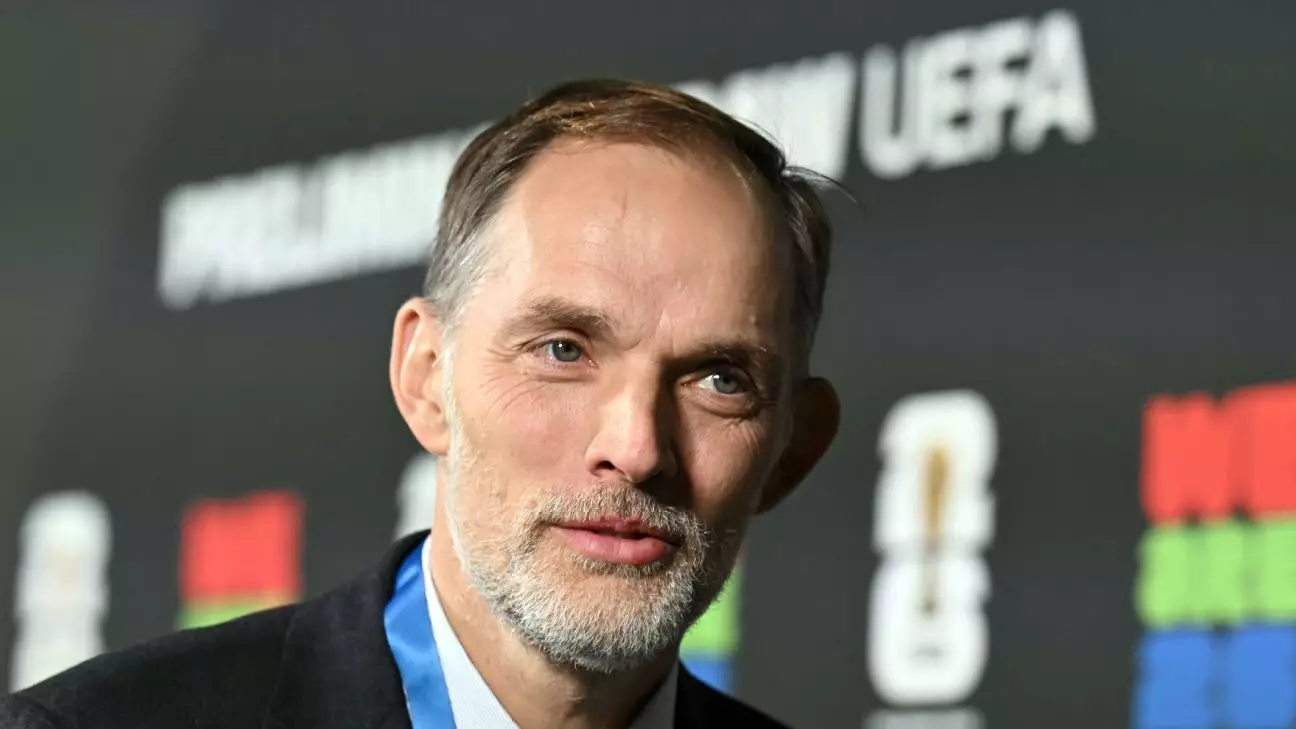The anticipation for the 2026 FIFA World Cup is mounting as England gears up to participate in the qualifying rounds. Recently, the draw for the European qualifying groups took place in Zurich, setting the stage for what promises to be an exhilarating journey for the England national team. Their group includes Serbia, Albania, Latvia, and Andorra—four teams that offer a mix of challenges and opportunities. The looming question is how well England will navigate this group under the new management of Thomas Tuchel, who brings a fresh perspective to a storied footballing nation.
The composition of England’s qualifying group presents a diverse range of opponents. Serbia and Albania are recognized for their competitive spirit and tactical nous, often able to disrupt the plans of larger footballing nations. Tuchel spoke with reverence for these teams, acknowledging their ability to surprise and their talent, particularly with coaches who have played at high levels. This sets the tone for England to approach these matches with caution and respect.
Conversely, Latvia is an uncharted territory for the English squad. Tuchel’s emphasis on this being a new experience indicates that there could be unexpected challenges harbored in facing a lesser-known team. The dynamics of international football mean that even teams with a smaller pedigree can produce performances that defy expectations. Additionally, the match against Andorra should ideally be a straightforward encounter; however, complacency cannot be the order of the day.
The Importance of Mindset
Tuchel’s first public appearance as manager served as a critical reminder about the mindset required for successful qualification. He stated, “We have to qualify, this is the most important thing.” This assertion underscores a fundamental aspect of international football, where one misstep can turn a dream into disappointment. The focus must squarely be on preparation and performance, ensuring that players remain grounded and fully aware of the stakes involved in each match.
The challenging environment of European football is ever-evolving, marked by competitive fixtures where the line between success and failure becomes increasingly thin. Tuchel’s acknowledgment that “the gaps between the big nations closes all the time” reflects the harsh reality of modern football. No longer can teams rest on their laurels based on historical prowess; they must consistently earn their place at the top of the table.
As England approaches their matches against this diverse group of opponents, strategic planning becomes paramount. With Tuchel at the helm, the potential for innovative tactical adjustments is promising. His experience at the club level provides him with insights into player management and adapting strategies to counter various styles of play. For England to excel, the players must execute the plans laid out, demonstrating their technical skills and teamwork.
The emphasis should also be placed on harnessing the attributes of the team. England boasts a rich pool of talent, but talent alone will not suffice. The coaching staff must foster synergy among players, emphasizing communication and fluidity on the pitch. This collaborative spirit can make a significant difference, especially in tightly contested matches.
The road to the World Cup will begin in March, marking the start of a rigorous qualifying campaign. As England steps into this new chapter, the team must remain resilient, capitalizing on their strengths while adapting to the nuances presented by each opponent. Tuchel’s message is clear: focus, respect, and preparation are critical.
With a careful blend of humility and ambition, England fans can look forward to a potentially thrilling qualifying campaign. While the expectation is high, it is essential to remember that success in football requires hard work, adaptability, and an enduring commitment to excellence. As the team prepares for its journey aboard this ambitious path, the hopes of a nation rest on their shoulders, calling for determination, resilience, and a resolute spirit.

